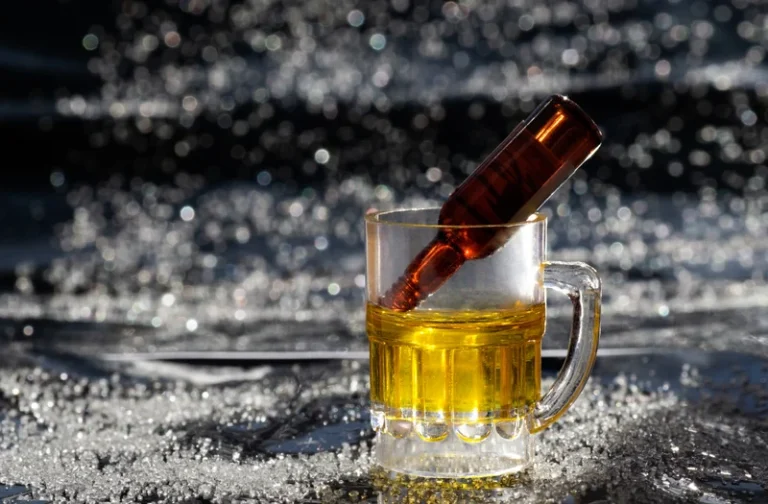Does Drinking Alcohol Cause Nasal Congestion? HowStuffWorks
Lucky Jet casino | Играй на актуальном зеркале, автоматы и бонусы
27 Settembre 2024Удачная игра в слоты, карты и рулетку на реальные деньги в ответственном азартном заведении
27 Settembre 2024Does Drinking Alcohol Cause Nasal Congestion? HowStuffWorks

As it turns out, understanding your alcohol-induced stuffy nose starts with understanding how your body processes alcohol — or tries to, anyway. Rarely, severe pain after drinking alcohol is a sign of a more serious disorder, such as Hodgkin’s lymphoma. Alcohol intolerance occurs when your body doesn’t have the proper enzymes to break down (metabolize) the toxins in alcohol.
Avoiding Alcohol With a Sinus Infection
The symptoms of histamine intolerance are similar to an allergic reaction. For example, potential symptoms include red and itchy skin, nasal congestion, shortness of breath, abdominal pain, and diarrhea. It is generally recommended that you avoid drinking alcohol if you are suffering from any kind of sinus infection or similar condition.
General Health
Then go to your nearest emergency department for follow-up care. If they suspect you have a true allergy to alcohol or another ingredient in alcoholic beverages, they will likely conduct allergy testing. The most common type of allergy testing is the skin prick test.
- If you are allergic to these ingredients, your skin will itch or you’ll get a rash during the test.
- But the good news is that understanding what might be behind these unexpected reactions can help you put them in perspective and take any appropriate actions.
- This happens because body is not able to tolerate the alcohol which circulates in blood.
- Whether you only have the occasional glass of wine at dinner or frequently enjoy late nights out, you’re sure to learn valuable tips to nip post-drinking nasal congestion in the bud.
Dispelling Common Myths and Misconceptions About Mouth Taping

People may experience a scratchy, raw, or irritated feeling in their throat, making it uncomfortable to swallow, talk, or even breathe. They might also feel parched, with a persistent urge to clear their throat. If you’re experiencing similar changes after starting a new medication, it might be time to have a chat with your doctor or pharmacist.

- When ADH levels drop, as they often do with age, alcohol lingers in your bloodstream longer.
- After alcohol is consumed, chemical reactions begin happening in the body.
- It is clearly inflammation as blowing my nose results in no production and nasal spray such as Afrin alleviates it.
- Similarly, he said he’s treated people who were actually sensitive to barley, hops, or malt rather than beer, or to fruits mixed into cocktails rather than the alcohol itself.
- The common cold is caused by a variety of viruses, including rhinoviruses and coronaviruses.
- We’ll explore potential triggers such as new health issues, medication interactions, or aging, and explain the difference between alcohol intolerance and allergies.
According to Dr. Daniel Hall-Flavin of the Mayo Clinic, “it’s best to avoid combining antidepressants and alcohol. It may worsen your symptoms, and it can be dangerous.” These are just a few examples of how changes in your health can turn alcohol into an unexpected problem. If you think a new health issue might be to blame, it’s crucial to get a proper diagnosis from a healthcare professional. White wine tends to contain higher levels of sulfites than red wine and beer. In order to understand why alcohol and sinuses are related, it is important to understand how alcohol is processed in the body. As your body digests, it collects nutrients and discards the rest.


Alcohol intolerance is a temporary, but pretty uncomfortable, reaction to alcohol — with nasal congestion and flushed skin being the two most common side effects. It happens if your ALDH2 enzymes (remember those?) aren’t particularly effective at their job, or if your body just doesn’t make enough ALDH2 enzyme in the first place. In either case, the result is less acetaldehyde being broken down into acetate. Alcohol intolerance can cause immediate, uncomfortable reactions after you drink alcohol.
Alcohol Intolerance vs. Allergy
Alcohol intolerance is caused by a genetic condition in which the body can’t break down alcohol efficiently. The only way to prevent these uncomfortable reactions is to avoid alcohol. Ok, so now that we’ve answered the question – why does my nose get stuffy when I drink? – it’s time to determine whether this is really a cause for concern or not. This is especially true if you suffer the occasional 2-day hangover.
This extra blood flow can lead to temporary swelling and increased mucus production, potentially provoking nasal and sinus congestion. “True allergic reactions to alcohol, that includes wine, spirits, beer and the like, are not common,” Clifford Bassett, the medical director of Allergy & Asthma Care of NY, explained to me. Similarly, he said he’s treated people who were actually sensitive to barley, hops, or malt rather than beer, why do i get congested when i drink beer or to fruits mixed into cocktails rather than the alcohol itself. There is no cure for the common cold, and drinking alcohol is not a recommended treatment. Alcohol can dehydrate your body, which can exacerbate a sore throat and dry out your nasal passages, making it harder to breathe.
What to know about a sore throat after drinking

If your body doesn’t produce enough active DAO, you may react to histamine in foods and beverages. It’s also found in many foods and beverages, especially fermented products. For example, aged cheese, smoked meats, sauerkraut, wine, and beer tend to be high in histamines. If you’ve ever noticed your nose gets more congested after you have a glass of wine (or other alcohol), you’re not alone!
